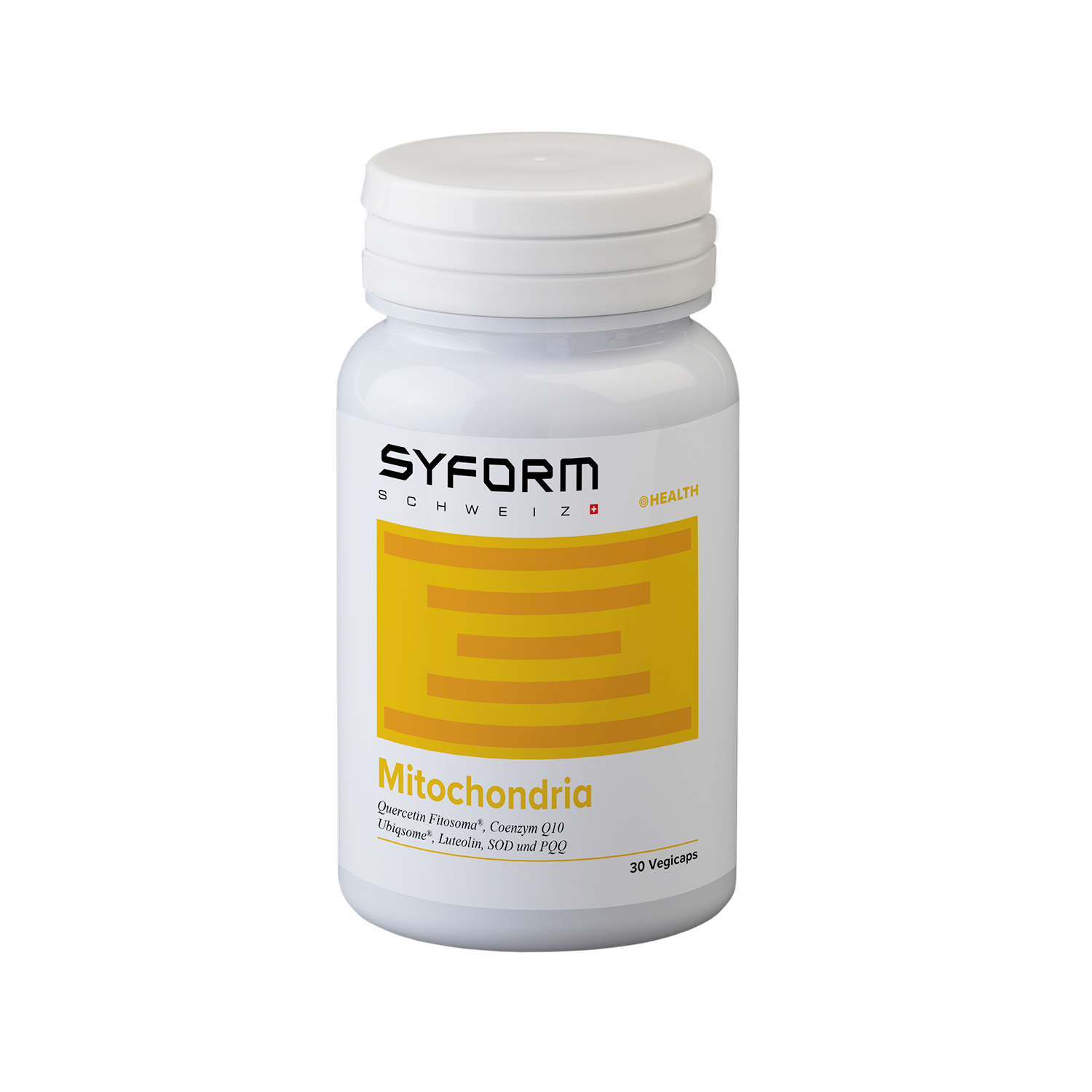Mitochondria is a food supplement composed of a pool of innovative active ingredients presented in a highly bioavailable pharmaceutical form, which intervene synergistically in numerous fundamental biochemical processes aimed at increasing mitochondrial activity and protecting cells from oxidative factors that can also be caused by intense physical exercise and are capable of inducing inflammation and altering cellular metabolism.
Pyrroloquinoline quinone (PQQ) is a molecule that has been the subject of numerous scientific studies. In nature, it is found in many plant species and strains of soil bacteria. It is considered a neovitamin-like factor, essential for cellular respiration and the immune system. Its mechanisms of action are still being studied, but it probably acts in the mitochondria, close to the site of generation of free radicals, where it can capture and inactivate them. It also acts as an enzymatic cofactor in redox reactions and has been shown to be a very powerful antioxidant, capable of counteracting various mechanisms related to oxidative stress.
PQQ appears to be able to activate important mitochondrial DNA repair mechanisms. However, the greatest interest in studying this molecule lies in the fact that it not only increases the functional efficiency of the remaining mitochondria, but would also be able to promote mitochondrial neogenesis. In addition, it could also initiate the biological process that causes the enlargement of the mitochondria themselves, which are the real energy powerhouse of the cells.
Quercetin is a flavonoid with high antioxidant, anti-inflammatory and antiplatelet activity. It is in fact able to inhibit some biochemical pathways involved in the production of prostaglandins and leukotrienes, cytokines with pro-inflammatory activity, as well as indirectly counteracting the release of histamine. At the same time, it exerts a powerful antioxidant action and protects the activity of the body's enzyme systems. Scientific evidence supports its anti-aging ability as it fights free radicals. Quercetin is not well soluble in water, which limits its biological effectiveness. For this reason, the phytosomal form in mitochondria has been used. The phytosome represents a patented technology of delivery system in biomimetics that allows to increase the bioabsorption of natural substances, including quercetin.
Coenzyme Q10 (Co-Q10) is a ubiquitous organic molecule. It is frequently found in biological membranes, particularly in mitochondria, where it is involved in aerobic phases and in energy production, promoting "cellular respiration" or the production of ATP in the presence of oxygen. Coenzyme Q10 is therefore essential for maintaining good physical performance. Its action is made possible by its ability to absorb free radicals. In addition, Co-Q10 has a very strong antioxidant effect, for example by controlling the peroxidation of membrane lipids and atherogenic particles of LDL cholesterol. Recent work also attributes to Coenzyme Q10 a protective effect against oxidative stress caused by intense physical exercise. Since Co-Q10 is poorly water-soluble (hydrophobic) due to its molecular structure, a technological tool must be provided to make this substance more bioavailable. For this reason, in Mitochondria the coenzyme Ubiqsome was used, that is, Co-Q10 with phytosome technology, which increases its bioavailability and therefore its effectiveness.
The enzyme superoxide dismutase (SOD) belongs to the class of oxidoreductases. Superoxide is one of the main toxic agents with oxidizing properties in the cell, causing major damage in the tissue. SOD therefore plays a key role in cellular integrity and is present in almost all cells exposed to oxygen. The SOD contained in the formulation was obtained from the bioliquefaction of carrots and specific studies have demonstrated its significant anti-radical activity, superior to the more common SOD from melon. This substance therefore plays a fundamental role in limiting oxidative and inflammatory stress, also caused by intense physical exercise.
Finally, luteolin, extracted from bitter orange, is a flavone with numerous biological effects. Among these is the extremely important protective effect against oxidative processes that affect DNA in the presence of free radicals. In addition, luteolin is one of the most powerful and effective polyphenols capable of inhibiting the production of pro-inflammatory cytokines.
